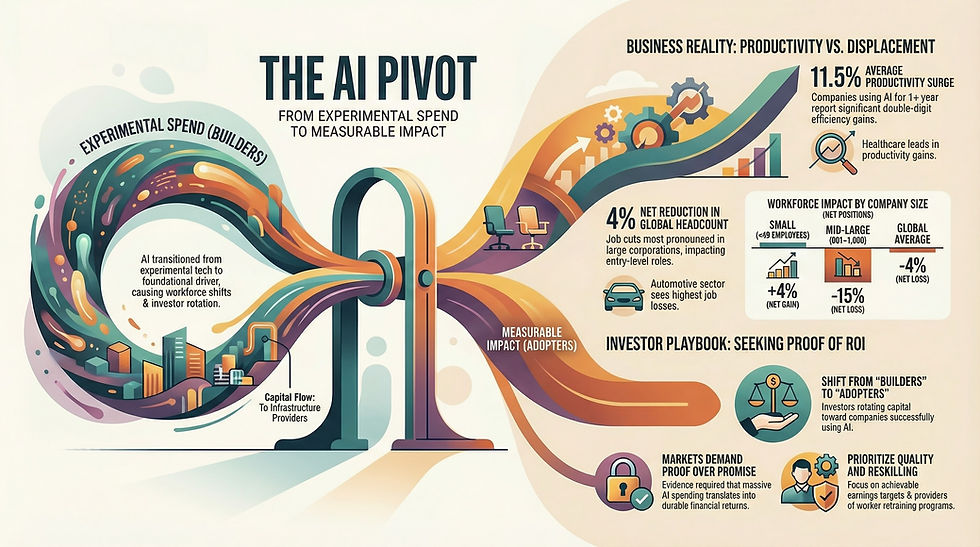Why Have Some Giant Stocks Fallen 80%?
- Alpesh Patel
- Jul 19, 2022
- 3 min read
Updated: Nov 15, 2023
Since peaking at almost $300 per share in July 2022, PayPal has dropped nearly 80%. The crash has wiped out over $50m in market value. Shares in the payment processor haven't been this cheap since 2016.
The S&P 500 is down about 14% so far this year. However, those losses look small compared to other equities like Meta, Netflix, Etsy, and PayPal.
So what exactly is happening here? Were earning forecasts that inaccurate? Or is there more to this than meets the eye?
PayPal problems
On May 24th, PayPal opened at less than $80 a share. It's been a considerable fall from grace for the FinTech giant.
PayPal was one of the darlings of the pandemic era. As e-Commerce exploded, PayPal offered a safe and easy way to shop and send money online. As a result, it added users and revenue at an astonishing rate.
There are two big reasons the stock is down. Firstly, net cash flow and free cash flow have dropped by around 30%. The removal of government stimulus and rising inflation have seriously hit consumer activities and caused the company to revise future projections.
Secondly, PayPal bet big on crypto. Like other crypto-exposed stocks, they've taken a hit as the digital currency markets have headed into a tailspin.
However, while revenue forecasts are being revised, they're still growing. New accounts are up 9%, and transactions per account are up 11%. As the company decouples from eBay, revenues are expected to increase. Many experts are suggesting it's time to buy.
PayPal user growth
PayPal, alongside Netflix, has promised investors significant user growth. However, both businesses had to revise their predictions for 2023 amid a slowdown.
Paypal suggested they'd hit 750m users by 2025. However, in February of this year, it closed 4.5m accounts, citing "bad actors" who were taking advantage of rewards programs and incentives. It currently has around 430m accounts, and some investors are sceptical that it can beat the competition and add to these numbers in time.
Additionally, the company has been buying back shares at an alarming rate. In Q1 of 2022, it repurchased 11m shares at $1.5bn.
Netflix's problems are considerably different. They face massive competition from Disney Plus, Amazon, Hulu, Peacock, and HBO max. Additionally, many media companies are choosing to keep their programming on their platforms, hurting Netflix. Add to this that Netflix has the highest subscription fee, and their forecast of losing 2 million customers in the next few months and their share price losses make sense.
While both businesses have taken an enormous hit, the situations are different.
Tech stock correction
Tech stocks have had a rough 2022. Their values shot up during the pandemic, but missed earnings forecasts have made some investors doubt they can maintain the momentum to justify high prices.
Rising interest rates and economic fears have played a big part too. On top of this, Growth stocks suffer during times of great inflation. These equities promise high future yields, but when inflation hits 8%+, those future payouts become far less valuable.
To add to those problems, the conflict in Ukraine, the reemergence of COVID-19 in China, and supply chain problems are all having a negative effect.
Should you buy the PayPal dip?
The present situation suggests that PayPal should be seen as a value rather than a growth stock. Its price-to-earnings ratio is down from 70 at its peak to around 20.
Secondly, it's still a quality stock. The company is still growing, and it has a healthy balance sheet. While it might not be able to reproduce pandemic levels of growth, it can still expand.
As Warren Buffet suggests, value stocks with great fundamentals are always worth considering.
Sign up to www.campaignforamillion.com today
Alpesh Patel OBE
Visit www.alpeshpatel.com/shares for more and see www.alpeshpatel.com/links




Comments